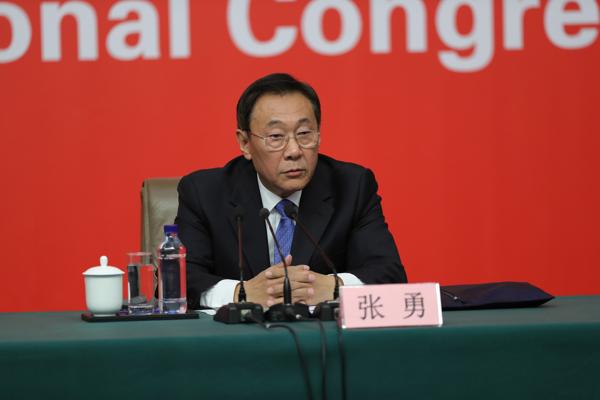
Zhang Yong, vice-chairman of China’s National Development and Reform Commission, October 21, Beijing. [Photo/Xinhua]
China will continue to optimize the investment environment for private investors as the growth rate of capital from this source slowed down in the first nine months of 2017, said China’s top economic planner.
More barriers will be torn down in the system to facilitate private investment, Zhang Yong, a vice-chairman of China’s National Development and Reform Commission, told reporters on Oct 21 amid the 19th National Congress of the Communist Party of China in Beijing.
Policy moves include launching a domestic “negative list” that will delineate the sectors legally closed to private investment and leave the rest completely open to capital regardless of nature, further cutting red tape, according to Zhang.
The government will also strengthen its credibility to lower the political cost for long-term investment from private business owners, “avoiding breach of contract due to changing of key government officials”, he said.
Data from China’s National Bureau of Statistics showed that China’s private investment increased by 6 percent in the first nine months of 2017, dropping 0.4 percentage points compared to the total volume of the first eight months.
Zhang attributed the slowdown to China’s systematic economic restructuring that is expected to cut overcapacity in housing market as well as manufacturing, two sectors into which a lion share of private capital has flooded over the past years but the margin for profitability has gone down with prices as a result of oversupply.
The boom of infrastructure construction has also been cooling down, causing the territory for investment opportunities to shrink further, Zhang explained.
“The government will put down more measures to steer private funds into new areas where investment can yield more profits”, he added.
The private sector has been thriving in the world’s second largest economy since China’s economic opening up in the 1980s, climbing to an ever higher share in national GDP and having grown into a pillar to employment by providing 80 percent of jobs nationwide, latest official data showed.
